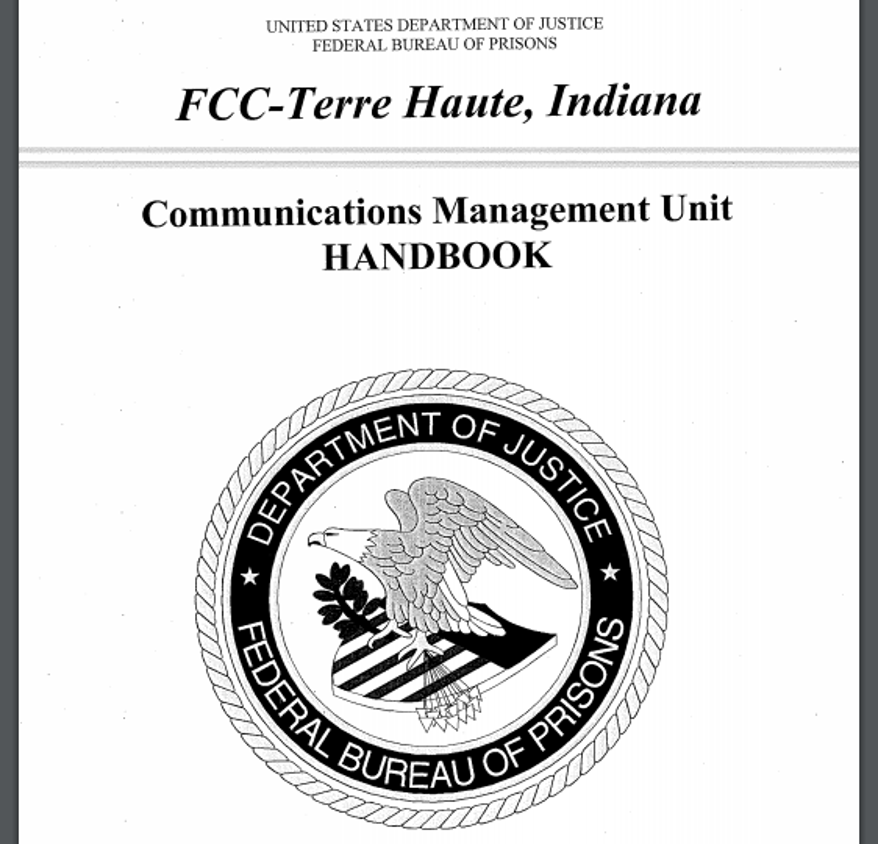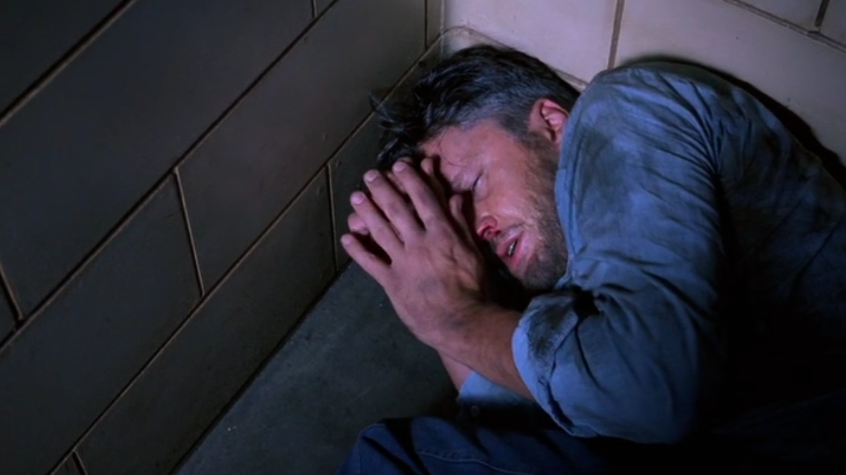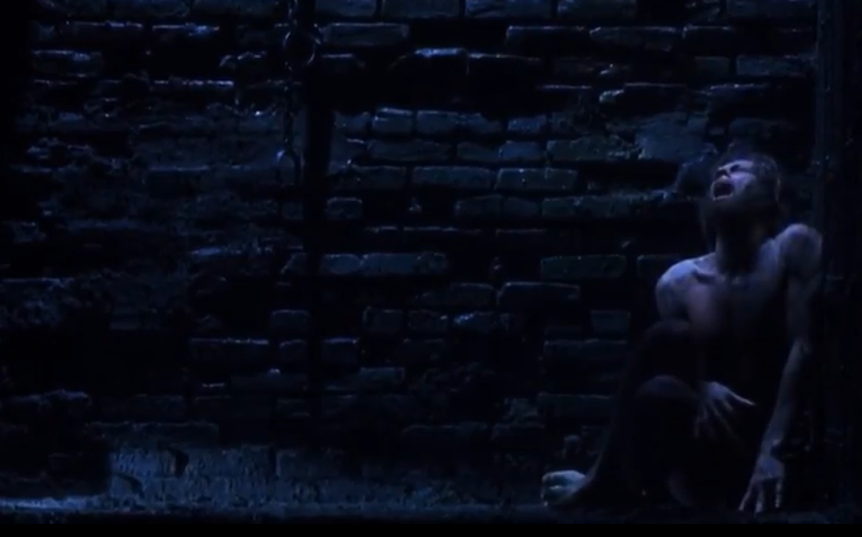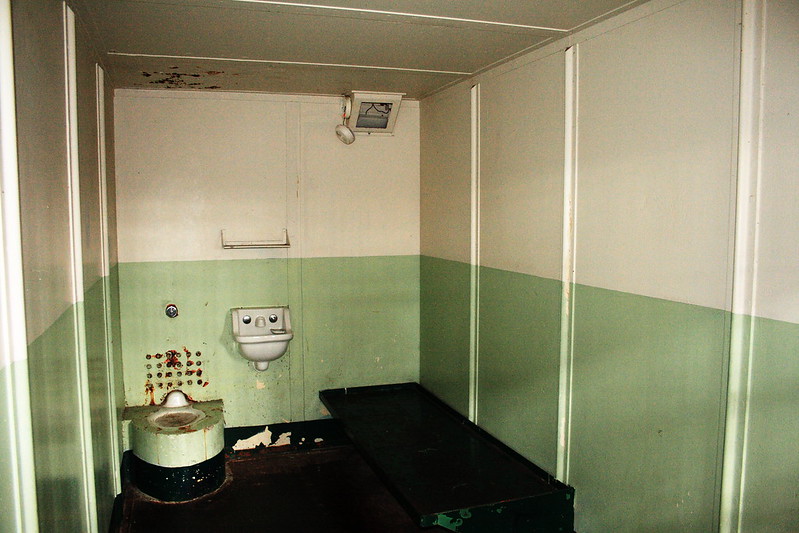Byline: By Martin Gottesfeld and Francis Schaeffer Cox
PLEASE NOTE: The authors have made this series available at FreeMartyG.com and FreeSchaeffer.com under the latest Creative Commons by-attribution commercial-use-permitted share-alike no-derivatives license.
This is part 4. Click here to read Inside the Black Sites Where Obama, Clinton, and Holder Buried Their Secrets—Part 1 of the CMU Series or click here to read An ISIS-Inspired Murder and DOJ Coverup in the CMU—Part 3 of the CMU Series.
"We have our own SHU here..." Evelyn Keller customarily warned new inmates at the FCI Terre Haute CMU. "And it's not a place where you want to go."
SHU (pronounced like "shoe") stands for special housing unit, which is itself a euphemism for what is more commonly called, simply, "the hole." Nearly all U.S. prisons have such punishment zones, which are (in)famous thanks to films like The Shawshank Redemption and Murder In the First.
But Keller knows about the FCI Terre Haute CMU special housing unit (SHU) almost as well as the inmates. She was the intelligence research officer (IRO) for that CMU until she transferred to Florence, Colorado, on April 5th, 2019. And as the former IRO, Keller was "responsible for all investigations conducted within the unit, as well as, all Unit Team matters in the absence of the Case Manager," according to the FCC-Terre Haute, Indiana Communications Management Unit HANDBOOK [sic]," which is provided to incoming inmates upon arrival here.

According to official DOJ documents, Evelyn Keller was the second in command of the FCI Terre Haute CMU. (U.S. Department of Justice, 2019)
It's telling, perhaps, that "the hole" within the FCI Terre Haute CMU isn't the same place the institution torments other inmates from units elsewhere in the facility. And it didn't seem lost on Keller that it's different than other SHUs in the Federal Bureau of Prisons (FBOP).
Indeed, political prisoners like Cox, Reynolds, and Johnson face barbaric degradation that is unique across the nationwide federal prison system and almost certainly qualifies as cruel and unusual punishment under the Eighth Amendment, not to mention as torture under U.S.-ratified international human-rights conventions the U.S. uses to criticize other nations for similar or lesser conduct.
"I've done a lot of SHU time at a lot of places, and nothing's like ‘the burrito cooker' here," assures Cox, referring to the SHU in the FCI Terre Haute CMU. "I spent about a month there recently, after I told my lawyer about the murder [of Robert David Neal] and he started asking questions."
Cox isn't alone either. Multiple other survivors credibly and uniformly detail inhumane conditions during their extended stays in the FCI Terre Haute CMU's "special housing unit," including extreme heat, lack of ventilation, insect infestation, sleep deprivation due to constant loud noise, and contaminated drinking water that is known to cause convulsive vomiting and dangerously-dehydrating diarrhea.
Without a single exception, these survivors all describe being deprived of their legal work, writing implements, paper, and postage stamps, thus leaving them unable to reach the courts despite sometimes facing imminent filing deadlines. They feel this is ordered by the off-site staff who monitor nearly all correspondence between the inmates and the outside—including to and from the courts.
 Movies like The Shawshank Redemption (pictured) have helped popularize what's now common knowledge about "the hole" in prisons.
Movies like The Shawshank Redemption (pictured) have helped popularize what's now common knowledge about "the hole" in prisons.
These survivors inside the FCI Terre Haute CMU are adamant their suffering was ordered by these outside monitors for political and litigation-related reasons. In some cases, line staff have conceded such to be the case. Other times, CMU inmates have strong circumstantial evidence supporting their claims, evidence that's likely far sturdier than that used to secure many criminal convictions in federal courts.
In contrast to the off-site monitors, these same concerned line staff, who work inside the FCI Terre Haute CMU, are in many, if not most, instances, the first to warn new inmates about some of the deplorable conditions in the unit's SHU. The concerns they've expressed appear genuine and compassionate to these reporters, who each received such warnings as new inmates at this CMU.
"The SHU here is built directly over a steam pipe, so it gets really hot and loud in there," a correctional officer (CO) warned on at least one such occasion.
"They put people in there for nothing," meaning for little or no reason, warned another CO on a different day.
But those facts alone seem to fall far short of adequately describing the horrors of "the hole" at the FCI Terre Haute CMU.
"We’ve cooked burritos [using only the heat] on the floor in the room next to that SHU," Cox augments. "It gets too hot to even stand on the floor in there. You could fry an egg on it if you wanted."
Other inmates also tell the burrito-cooking story and spontaneously interject that an egg would fry using just the heat from the concrete floor.
Further, while inmates elsewhere in the FBOP system would rarely, if ever, be thrown in "the hole" for discussing their cases or the conditions of their confinement, political prisoners in the FCI Terre Haute CMU routinely spend weeks, months, or more than a year in "the burrito cooker" over speech that seems to qualify for First-Amendment protection, even behind bars, like Cox's messages following the death of Robert David Neal, as well as, very possibly, this series of articles too.
But the Constitution and its protections can seem very far away in a CMU, where—as each of these reporters both witnessed and experienced—mail sent to U.S. courts (especially mail that the FBOP might find inconvenient) often arrives late, altered, incomplete, empty, or not at all, similar to how Reynolds' letter to Representative Cummings's office went missing. Adding to this, the off-site staff, who monitor communications to and from the CMUs, often enforce unwritten rules ex post facto and punish political prisoners for alleged violations of rules that were long ago struck down by federal courts as unconstitutional. The CMUs are thus effectively Due-Process dead-zones.
 Fact, Hollywood fiction, or both?(Screengrab from movie Murder In the First)
Fact, Hollywood fiction, or both?(Screengrab from movie Murder In the First)
Those in the CMUs, moreover, cannot confidentially contact the Office of the Inspector General (OIG). The OIG is the internal watchdog for the DOJ, so the inability of CMU inmates to send reports to the OIG without the FBOP pre-screening them presents serious issues and conflicts of interest. Indeed, federal inmates elsewhere can send private electronic messages to the OIG instantaneously, but not those in the CMUs.
This lack of nearly all accountability seems responsible for enabling particularly cruel and unusual extrajudicial punishments. Multiple witnesses report, for one example, that Clint Swift, the former case manager for the FCI Terre Haute CMU, told an inmate his mother had died only to reveal about 4 days later that she hadn't really passed away.
Cox met Swift shortly after he was transferred from the CMU in Marion to the FCI Terre Haute CMU in May, 2018. He remembers Swift confronting him over a lawsuit he filed in Marion that was still pending when he arrived in Terre Haute.
"I noticed that you're suing over our mail policy. Our SHU here is not some place you want to be," Cox recounts Swift emphasizing to him ominously. "It is extremely hot because of the steam pipes that run under there to the [nearby prison] camp. So, keep that in mind if you're thinking about trying to fight the system, because the CMU is not the place to challenge the way we do things."
"I'm just saying, do what you want. But you'll drop those lawsuits if you know what's good for you," Cox recalls Swift coercing him. "You're gonna [sic] learn that if you make people look bad, your life will become unbearably difficult."
Remembering similar experiences at the USP Marion GMU, Cox dropped his suit rather than risk "the burrito cooker."
“You're gonna [sic] learn that if you make people look bad, your life will become unbearably difficult." —Former FCI Terre Haute CMU Case Manager Clint Swift
Yet, perhaps no one has spent more time in the special housing units at both the DOJ’s black-site CMUs than Scott Lewis Rendelman.
Before his time in prison, Rendelman was a concert-quality pianist, a whiz at chess, and—by nearly all accounts—a fastidious accountant. Some call him a savant. And given his readily-apparent difficulty maintaining eye contact during conversations and other tendencies, which, alone, could be taken to indicate OCD, it's distinctly possible that Rendelman is on the autism spectrum.
In any event, Rendelman was sent to federal prison in the 1980s, following a dispute over some money he invested for a client in Maryland. He maintained his innocence and refused to take a plea deal that likely would've allowed him to avoid prison altogether. He asserted that he hadn't done anything wrong or illegal, and the client in question later reportedly forgave him, attributing the criminal case against Rendelman to an overreaction about a small amount of money.
People who know Rendelman agree he is pure-hearted, honest, and kind.
Rendelman's prison experience, in contrast, has been such a nightmare that many details have to be omitted in print for a general audience. Suffice to say though, he was brutally and repeatedly raped by prison gangs and suffered a nervous breakdown. As one might expect from decades of such abuse, he was traumatized severely enough that he's apparently never recovered.
"He was totally non-violent," Cox adds solemnly. "He never even punched back while they were raping him."
In the 1980s, decades before the passage of the Prison Rape Elimination Act, or PREA, guards simply looked the other way as vulnerable inmates like Rendelman were victimized.
It seems that partly due to his mental condition and as a way to escape the sexual violence he experienced in general population, Rendelman took to writing vulgar—but oddly-childish—letters to U.S. presidents and other high-ranking officials, threatening them with absurd-yet-highly-detailed sexual violence as apparent payback for sending him to prison where he "got raped instead of rehabilitated." One such letter involved then—President-Obama's rectum, a Snickers® bar, a waterboard, and "buckets of prison [expletive deleted] [ejaculate]." Rendelman threatened to "pee in the attorney general's tropical fish tank and kill all the fish," in another.
While likely laughable coming from a 5-foot-2-inch 150-pound man whose acquaintances say he sounds like Piglet from Winnie the Pooh, the DOJ and the federal courts still considered Rendelman's messages threats—even though most of them never left federal prison in the mail.
Rendelman's letters had real-world effects though, which appeared two-fold. First, the FBOP put him in solitary confinement under nearly-perpetual investigation. And, second, the DOJ stacked a seemingly-ever-increasing pile of federal felony charges against Rendelman, resulting in more prison time.
Rendelman could stay in the SHU where he didn't get raped, however, so long as he kept writing so-called "nastygrams" to the president and others. But his original sentence ballooned, little by little, from months into over 40 years—an apparent result of the FBOP's indifference to the ongoing institutionalized sexual violence he endured and the knee-jerk fixation of the DOJ and federal courts to the letters Rendelman composed as a result.
A thorough search for Rendelman's name in the federal case law from both his home state of Maryland and the locations of the CMUs using the FBOP's subscription to LexisNexis® yields many results describing his letters and the court-ordered mental health evaluations that deemed him "competent" to stand trial. But curiously there is not a single mention of the word "rape" in any of those judicial decisions. The odds of such consistent omissions being unintentional seem low.
Then, in 2003, nearly 20 years into Rendelman's incarceration, Congress passed the Prison Rape Elimination Act (PREA), mentioned earlier. A string of high-profile lawsuits followed, holding the FBOP legally responsible for its systemic inaction in cases like Rendelman's. Rather than help Rendelman, however, the FBOP's top brass quickly appears to have identified him as a multi-million-dollar legal liability and a public-relations nightmare.
The FBOP then buried Rendelman in the CMUs, and more specifically, it held him for years at a time in the SHUs therein. The bureau likely assumed that the press, attorneys, and advocacy groups like Autism Speaks would never uncover him there. But starting now, any such assumption by the FBOP would be wrong.
Given the past, however, it still might be very difficult for advocates to help Scott Rendelman.
"I once tried to tell my mother about what happened to Scott Rendelman," says Cox. "I thought maybe we could find him a lawyer. But I didn't get two words into the call before the outside monitor cut the phone line and three COs rushed me. They pressed me up against the wall and told me that I'd strayed from the ‘approved topic’ of conversation."
Scott Rendelman's life may have become a nightmare, consisting of nearly 30 years of sexual violence and bureaucratic indifference followed by institutionalized malevolence and untreated nervous breakdowns, but Cox says that when he dreams, "He dreams of going home."

 Donate Now
Donate Now
 Follow
Follow 
